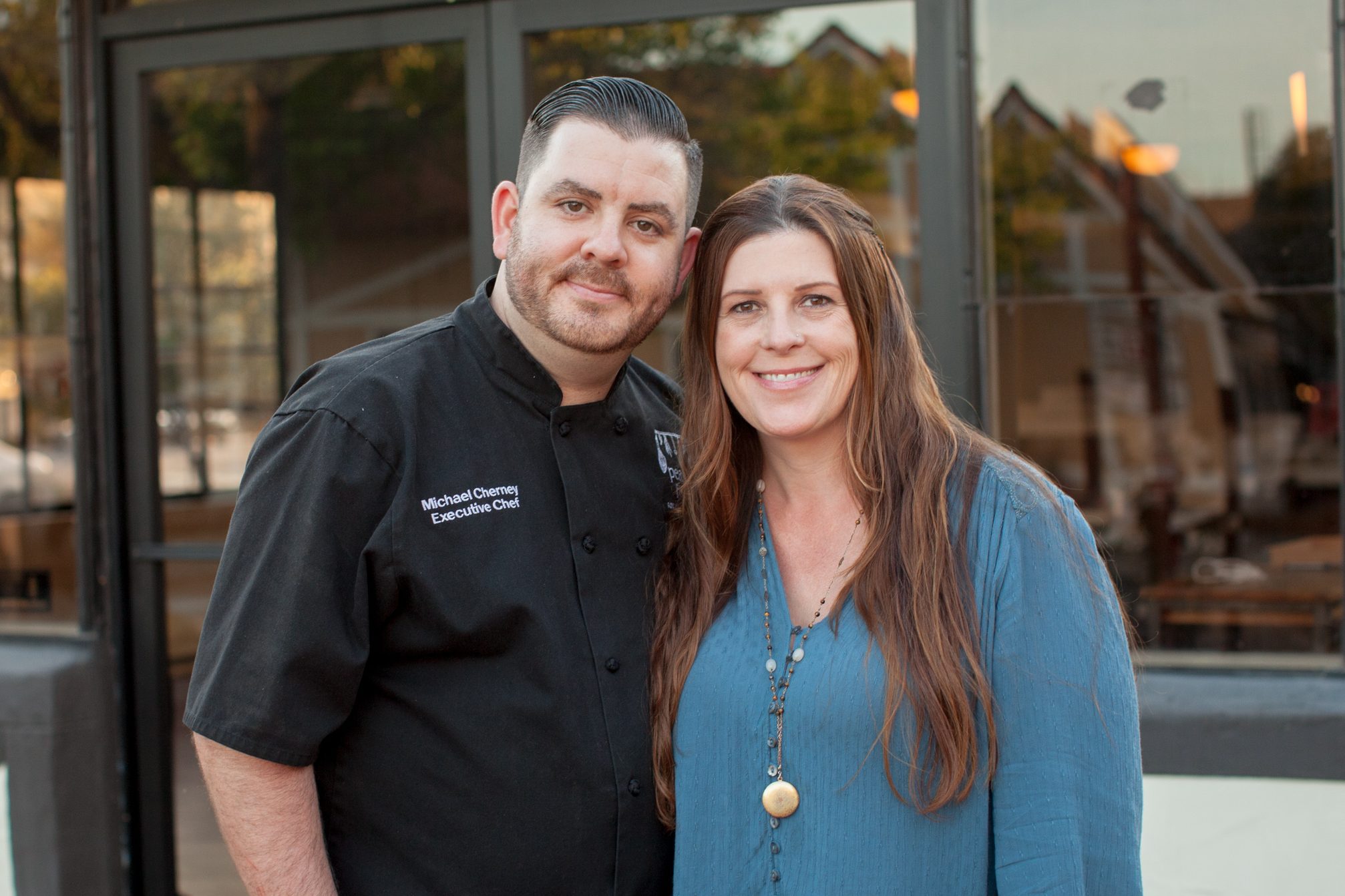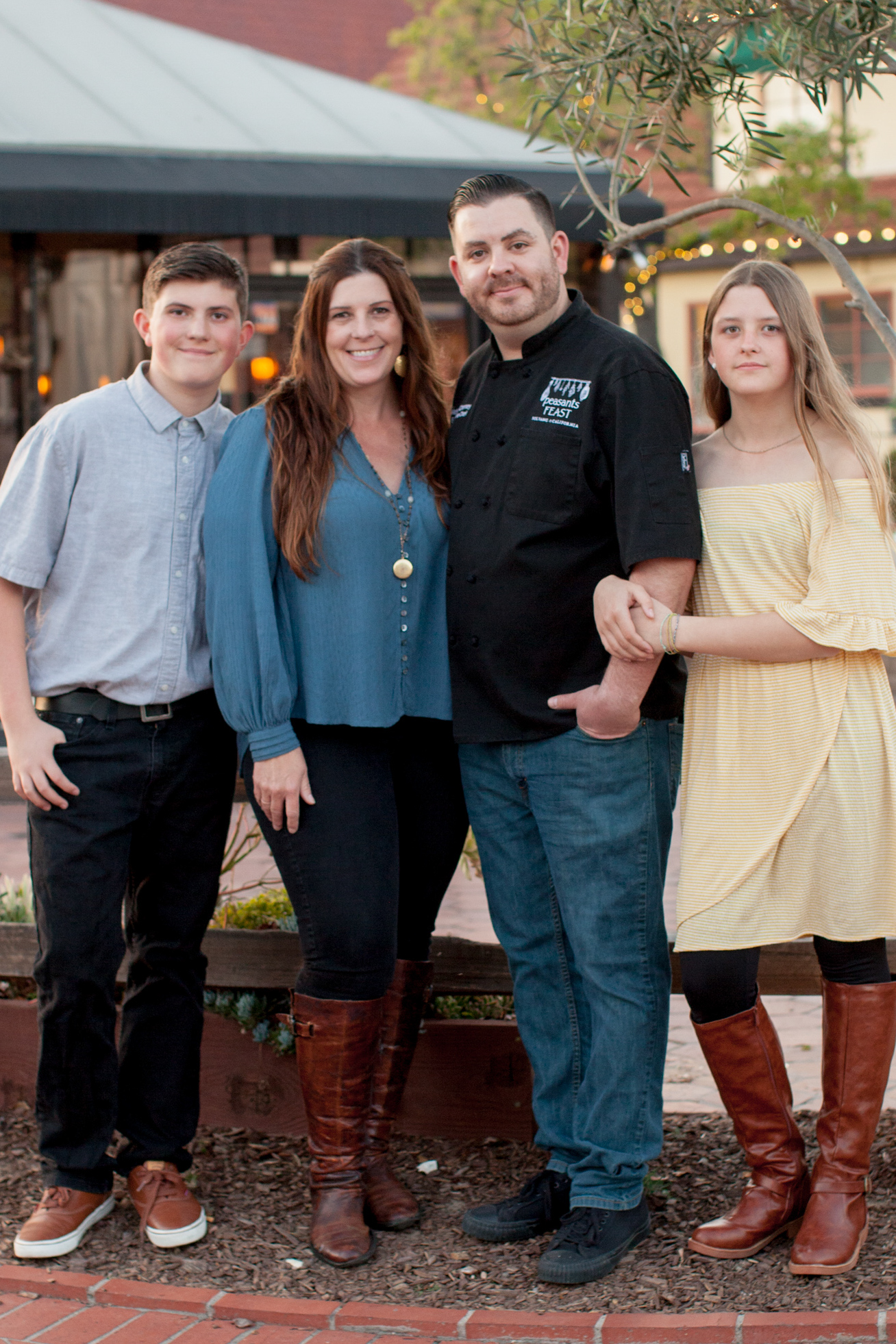
Passion and positivity are easy when things are going well. But what about when everything falls apart? The Cherney family could never have imagined what would happen when they set out to build their dream. Husband-and-wife Michael and Sarah Cherney built their brand new restaurant along with their daughter Reina who crafts house-made ice cream. Committed to hyper-local goods and food as a way to nurture our bodies and eat more sustainably, their premise seemed foolproof, especially with Michael’s Michelin-starred pedigree and Sarah’s decades of restaurant experience and passion for hospitality, but before the restaurant’s doors could open, the pandemic struck, shuttering restaurants worldwide.
The Cherneys had a choice. Shut down or stay passionate and positive and keep going despite the odds being stacked against them and nearly every small business owner at this time. Believing a celebration of healthy, local food was crucial now more than ever, they opened peasants FEAST on schedule.
I spoke with Michael and Sarah about their drive and what we can all learn from it and why eating locally is so important, both at restaurants and at home. We also spoke about how they prioritized their mental health in order to overcome the challenge of starting a new business in the middle of a pandemic.

Photo credit: Linda Chaja Photography
Krystalán: What inspired you to start peasants FEAST?
Michael Cherney: After three years working at L’Atelier, I decided I wanted to travel and see more of the world and its cuisine. I backpacked throughout Central and South America, the Middle East and China, before settling down to work and live on a 40-acre sustainable and organic farm in California. My passion for using high-quality, seasonal produce only grew. After helping launch restaurants, working as a chef, and catering events, starting peasants FEAST and creating a community-centric restaurant just seemed like the natural next step forward.
Krystalán: The name captures the local focus that is celebrated in your food. How did the name come about?
Cherney: The reference to ‘peasants’ is our way of saying ‘community.’ We really value the people who do the work that brings the food to our kitchen, which then allows us to craft great meals. We want to create a space which celebrates that and which offers delicious foods and welcoming experiences for everyone. The ‘feast’ part came from Sarah’s mom, who believes in the power of shared meals to bring people together.
Krystalán: Wellness and community seem to be very important values to you and Sarah. What tips do you have for others looking to integrate more wellness into their lives?
Cherney: We believe that sourcing local, organic and seasonal ingredients is the key to wellness. Avoid processed foods and make everything from scratch. Support like-minded local, independently-owned bakeries, wineries, breweries and other artisanal producers. We do this as much as we can, which is why you won’t be able to find some bottles on our wine list anywhere else — they’re from local, organic producers who share our same connection to sustainable farming.
Krystalán: Starting a new business is never easy, but you opened peasants FEAST in April 2020, a time when many established restaurants were struggling. How did you overcome this challenge? Cherney: We opened peasants FEAST on April 1, 2020, a mere 30 days after signing our lease for the space — and two weeks into the mandatory, worldwide safer-at-home orders. It was just Sarah, myself, and two cooks to set up and staff the entire restaurant. We were simultaneously homeschooling the kids in the restaurant while trying to run and open a new business.
Aside from the pandemic, it’s challenging to build a brand from the ground up, and try to share our story as a family and as new restaurateurs in a way that resonates with a larger number of people. All of this occurred while we were dealing with unexpectedly losing a parent.
Krystalán: What did this experience teach you about the importance of caring for mental health in work and in your regular life? What advice do you have for others to care for their mental health while beginning a new venture?
Cherney: Mental health is really important to us, but discovering how to incorporate it into our work had a learning curve. The beginning was rough; the four of us were working 14- to 16-hour days, six days per week, with no breaks. We did it. But it was too much. There was no way we would make it like this, long-term. We had to make a change. Three months in, we decided to close for two days each week. Now, the entire team has two consecutive days off to recharge their batteries, be with their loved ones, and take care of personal matters. Also, aside from my two sous chefs, everyone works eight hours per day or less. Now, we make sure to prioritize mental health every day. Before each employee enters the building for their shift, we unload our pockets of all of the negative energy, thoughts, day-to-day stresses, and life dramas. We stand at the door and throw these “things” into the trash. I’m sure if people see us do this, they probably think we’re nuts, but it really helps set the pace and clear our heads for the day. Leave what you don’t need at the door.
Each employee enters the building with a smile, greets each other, and checks in with each other. Then we start grinding away.

